Cuba’s new emigration boom dwarfs those of the past
Deteriorating living conditions on the island are driving crowds to line up for visas outside consulates. Exodus numbers are overtaking the crisis years of 1980 and 1994
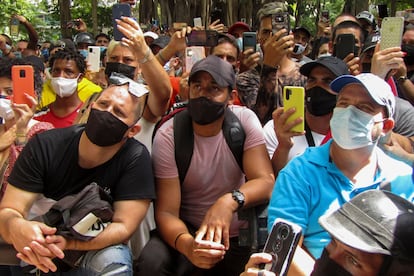
“This is a really dramatic situation, my boy: everyone who can get out of here is doing so,” says a woman waiting her turn to apply for a visa in front of the Mexican consulate in Havana. Like every other weekday, a crowd has gathered here after making an appointment months ago through the website of the diplomatic mission in the Cuban capital. On the screen of his cellphone, a young man watches a video of fellow Cubans swimming across the Rio Grande to the rhythm of a popular reggaeton song called El campeón (The champion). He says that one of the authors of the song, an artist named Kimiko, has just crossed into the United States through the Mexican border. “He’s already been baptized.”
As it is practically impossible to get an appointment at the consulate at any time in the near future, some people pay hundreds of dollars to individuals who promise they can make things go faster. This system, which feeds on people’s desperation, usually ends in a scam. The woman who is waiting for her turn confesses that if she is given a tourist visa, she has no plans to return to Cuba: “My two children left a year ago with their wives for Central America. They are already in Miami, where my first grandson was just born. My mother and sister left after the Special Period [a prolonged economic crisis in the 1990s], so I am all alone.”
Like this woman’s relatives, tens of thousands of Cubans have left the country in recent times by different means. But now it’s different. This time, it’s a stampede. Young people are leaving. Entire families are emigrating. Some have even sold their house to pay for the trip. Cuban authorities assure that many more are choosing to remain and that the United States is manipulating the matter to make it look like one cannot live in Cuba. But the departures continue unabated.
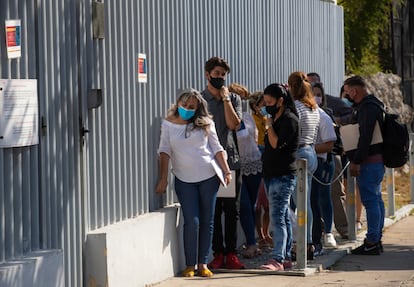
“The current Cuban migratory crisis – and I don’t know why it hasn’t been described as such – makes me enormously sad, because it’s like a wave that keeps growing and, from what I can see, it will continue to grow, it will continue to impoverish us,” says the Cuban writer Leonardo Padura, author of Like Dust in the Wind, the great novel of post-revolution exile.
Data from the US Department of Customs and Border Protection are eloquent. In the seven months from October 2021 to April 2022, nearly 115,000 Cubans entered US territory irregularly through the Mexican border, three times more than during the last fiscal year (between October 1, 2020 and 30 September 2021, when 38,500 Cubans arrived in the US by the same route).
Travel has increased exponentially since Nicaragua announced in November that Cuban citizens would no longer need a visa to enter the Central American country. Thousands of people have since left the island for Managua, the first stop on a journey that involves falling into the hands of smugglers, crossing borders and paying bribes to corrupt officials to reach the northern states of Mexico, a risky journey during which migrants may pay between $8,000 and $10,000 to reach their destination.
In December, 7,983 Cubans entered the United States through the southern border. In January there were 9,700, almost double that number in February, then 32,000 in March and a record 35,000 in April, the same number of people who left the island during the 1994 Cuban rafter crisis.
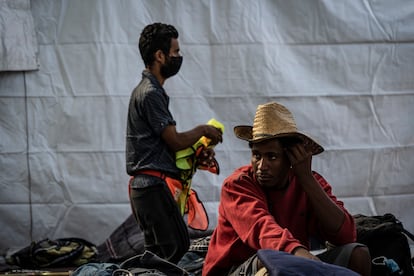
“This is a silent Mariel boatlift,” says a Cuban sociologist, alluding to a mass migration of Cubans to Miami in 1980. “We are talking about the fact that in recent months almost the same number of emigrants entered through Mexico as during the entire exodus of 1980, when 125,000 people left. And the trend is going to continue.” And these numbers do not include Cubans who emigrate to other countries or who try to leave by sea despite the risk of being deported by the Coast Guard: nearly 1,000 would-be boat migrants have been intercepted in the last four months.
According to Cuban authorities, from January to mid-May more than 1,300 Cubans have been repatriated to the island from Mexico, the US and the Bahamas, compared with 1,500 deportations in all of 2021. Mexico has even had to charter a weekly flight (and sometimes two) to return all the illegal immigrants.
The causes of the current exodus are diverse, although perhaps the main one is the intense deterioration of living conditions. The country is going through an acute crisis aggravated by the pandemic, inflation derived from the so-called “monetary order,” the inefficiency of the state’s productive system and the slow pace of economic reforms. Of course, the intensification of the US embargo, which Havana considers the main cause of its ills, also weighs heavily. It is a perfect storm that has put the country before a migration crisis of uncertain consequences.
“More than anything there is a general dejection, an absolute lack of hope that the situation will ever improve,” says a young man who is lining up to buy a ticket at the offices of Copa airline, which flies to Central America. “People can’t take any more,” he says. “Young people have no incentives to stay, and the best of them leave, the university students, the most highly educated, even people with a good position....” This last fact is confirmed by a European diplomat, who explains that two employees at his embassy have just left for the United States even though they were making about $1,000 a month, much higher than any salary on the island: “When I asked them why they were leaving, one of them replied: ‘You only have one life to live.’”
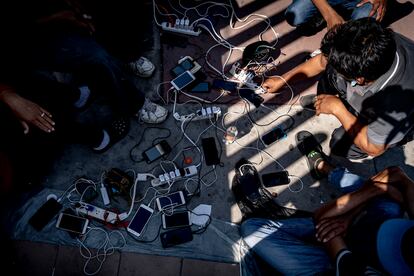
The Cuban government has acknowledged “the sustained increase in irregular emigration” and also in repatriations. But it blames Washington for stimulating this flow by keeping laws in force such as the Cuban Adjustment, which grants benefits to emigrants from the island and makes their deportation practically impossible, and also for failing to comply with the migratory agreements signed between the two countries. These establish that the US must grant a minimum of 20,000 emigrant visas per year, something that has not happened since the Trump administration dismantled its consulate in Havana due to alleged “sonic attacks” against its officials, which have never been proven.
At a recent high-level meeting between the two countries to discuss migration issues – the first of the Biden era –, Cuba blamed Washington for having an “incoherent” policy, which on the one hand exacerbates the country’s difficulties through the embargo and on the other prevents orderly migration. Havana assures that, in addition, Washington has pressured countries such as Costa Rica and Panama, which now require a transit visa for Cubans who intend to travel to Nicaragua, a measure that has caused scenes of chaos and huge lines in front of these embassies in the capital.
When things get tight in Cuba, leaving becomes an escape valve. And now things are very tight. Faced with a constant human drain, prominent academics, intellectuals and writers such as Padura have voiced concern about something they feel is mortgaging the future of the nation. The issue is debated almost daily on social media, and the government is being asked to urgently introduce the changes that the country needs (and not just economic ones), to give people hope.
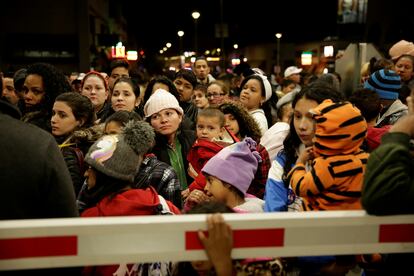
Padura – who has never wanted to leave his country – says that he has seen people spend all night in front of a store to buy any product at all and resell it the next morning. “I hear almost everyone complain that they don’t have enough money to begin with, so it shouldn’t surprise anyone then that there are so many people, of any age and condition, looking for a way to leave.”
Like Padura, the filmmaker Fernando Pérez, author of cult films such as Havana Suite, sees a divorce between reality on the streets and the official world depicted by state media. “The official discourse goes one way and reality goes another. That is very harmful. People need answers, they need dialogue. How to maintain a dialogue? I don’t want to be a dissident, but how am I going to follow you if what you tell me has nothing to do with my reality?” he said in a recent interview with the digital news outlet Oncuba.
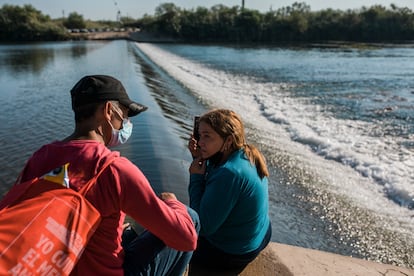
Tu suscripción se está usando en otro dispositivo
¿Quieres añadir otro usuario a tu suscripción?
Si continúas leyendo en este dispositivo, no se podrá leer en el otro.
FlechaTu suscripción se está usando en otro dispositivo y solo puedes acceder a EL PAÍS desde un dispositivo a la vez.
Si quieres compartir tu cuenta, cambia tu suscripción a la modalidad Premium, así podrás añadir otro usuario. Cada uno accederá con su propia cuenta de email, lo que os permitirá personalizar vuestra experiencia en EL PAÍS.
¿Tienes una suscripción de empresa? Accede aquí para contratar más cuentas.
En el caso de no saber quién está usando tu cuenta, te recomendamos cambiar tu contraseña aquí.
Si decides continuar compartiendo tu cuenta, este mensaje se mostrará en tu dispositivo y en el de la otra persona que está usando tu cuenta de forma indefinida, afectando a tu experiencia de lectura. Puedes consultar aquí los términos y condiciones de la suscripción digital.








































